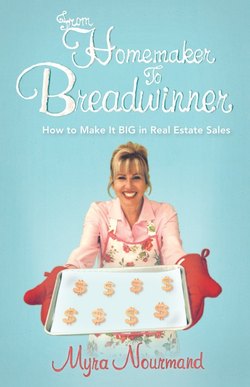Читать книгу From Homemaker to Breadwinner - Myra Ph.D Nourmand - Страница 4
На сайте Литреса книга снята с продажи.
Six Years in the United States
ОглавлениеMy parents were strong people. They had survived one of the most horrific events of the 20th century and lived to talk about it. The experience of being in a concentration camp motivated them to rise above those whose goal was to annihilate them. Once in New Jersey, they immediately found work, which meant that they had to send their baby daughter to day care. At the time, this was something uncommon for Eastern European parents to do.
My father’s first job was in a dairy. Meanwhile, my mother worked in a factory sewing dresses. Before her morning commute by bus, she took me to day care. Because she didn’t drive, she pushed a stroller through snow, rain, or heat, and dropped me off at the childcare center. From there, she waited for a bus that would take her to the factory. At the end of the day, after hours of intense work, she would repeat the process: bus ride, day care, and then a walk home.
From the beginning, my parents lived frugally because they were intent on purchasing a home. Once they saved enough, they invested in a two-story property. The three of us lived on the first floor while a family rented the room upstairs. Little did I know that my parents’ understanding of the benefits of homeownership would guide my career choice many years later.
As a result of his success, my father bought his own dairy business. At home, we had what seemed like an endless supply of eggs, milk, butter, and cheese. By the time I was five, I had already consumed a lifetime’s worth of dairy products, which probably explains why I don’t care for them today.
The business grew, and he took on a partner to share the responsibilities. My parents were reaching their goals and became respected members of society. In 1954, all three of us became naturalized citizens. My father then secured a driver’s license and declared his fulfillment of the American Dream by buying a car—a shiny, new black Buick.
My father had kept the promise he made to his wife several years ago in Germany. They were established in their new country, and he was a successful entrepreneur. Although the war had stripped him of everything he valued, he maintained an insatiable hope for the future and a commitment to his family.
On Thanksgiving Day, 1954, my parents and I were on our way to dinner at the home of my father’s business partner. I recall sitting in the back seat surrounded by other cars—all of us driving to our Thanksgiving Day destinations. Suddenly, our new Buick stopped. In the middle of traffic, my father abruptly grabbed the gearshift and shifted it into Park. Without saying a word, he put his head down.
My mother shook his shoulder back and forth. His head, however, remained planted on the headrest. Traffic signals changed from red to green. Horns blared behind us. Surrounding cars moved ahead and swerved around ours. But my father’s unconscious state remained the same. My mother let out a scream—a visceral cry that I’ll never forget.
To this day, I don’t know how they found out, but eventually I heard the shrill of a siren. I was only six years old, so I did my best to explain what happened to the paramedics. They carried my father out of the car, and we took a seat in the ambulance.
Once we arrived at the hospital, I sat in the waiting room while my mother remained with my father. Eventually, she emerged from the hospital room and sat next to me. Her eyes were filled with tears, and her hands were full. In her fists, she clutched a watch, a wedding band, and a wallet. My father had a fatal coronary heart attack, and these were the three possessions that he carried with him.
Grieving was a luxury my mother could not afford. The bills had to be paid, and her daughter had to be raised. For the next two years, she worked as a single mother to support both of us.
From that Thanksgiving forward, we stopped celebrating the holiday. Year after year, I remember sitting in class and listening to my teachers talk about Thanksgiving. “It’s a time to give thanks,” they would say. Meanwhile, it was a day about which we never spoke at home and an event that brought about one of the biggest changes of my life.
It wasn’t until I married Saeed that Thanksgiving was restored to its celebratory status. We were looking to live in Beverly Hills at the time, and I was pregnant with our second son, Michael. It was a big move—from our simple residence to our estate in the best part of Beverly Hills. We finally found a home that we loved.
Unfortunately, competition was fierce, and our chances for an accepted offer were slim. The other buyers were more qualified and had better financial resources than we did. But through Saeed’s determination and negotiation skills, he convinced the owner to sell us the house.
Thanksgiving was rapidly approaching, and Saeed explained to the owner the circumstances behind my father’s death. My husband requested to buy the house on Thanksgiving Day. He told the seller that he never wanted his wife to be sad on this day again. The deal was sealed on Thanksgiving; escrow closed two months later, and we moved into our beautiful home on the first day of spring.
